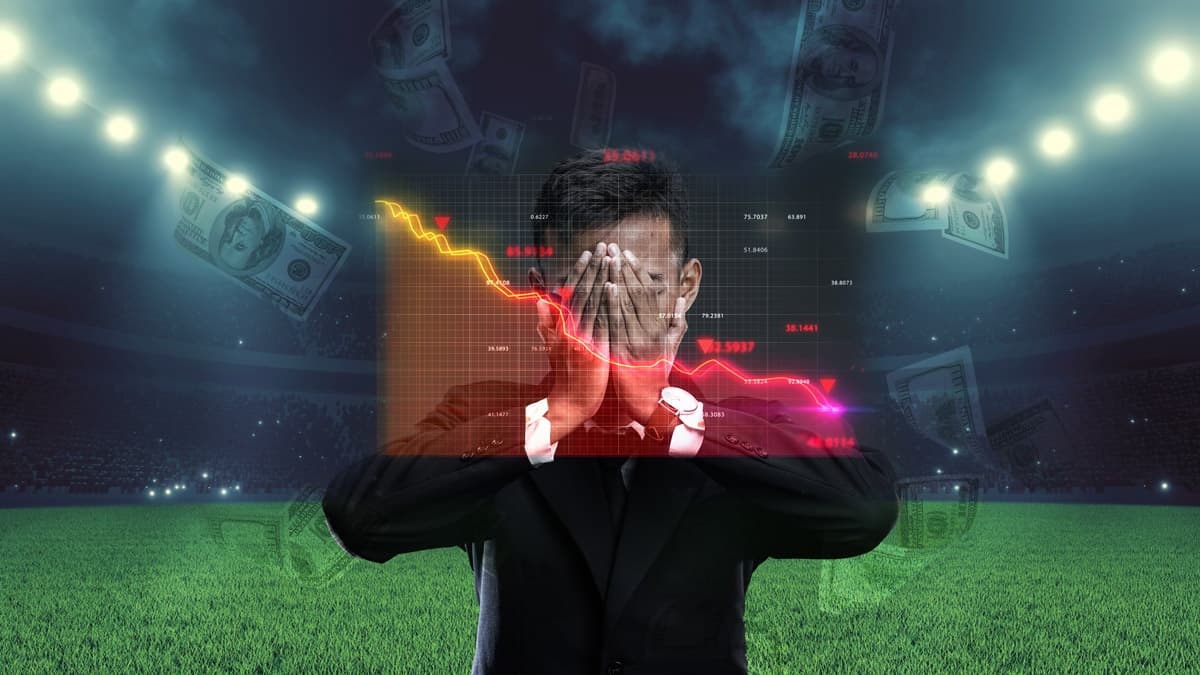Group Therapy Online
Bringing individuals together who have shared experiences to a safe space for dialog and mutual learning.

Dealing with addiction, mental health difficulties and trauma on your own is isolating. That’s why we created Kindbrige Circles; online groups where people of all backgrounds can get help from a licenced therapist and feel safe to express themselves amongst others with similar challenges.
Register Now
Kindbridge Circles: Online Group Therapy
Kindbridge Circles are designed to support individuals, couples, and families a resolve a range of personal and mental health challenges. Online group therapy sessions are simply awesome. They are an efficient alternative to in-person therapy and provide a welcoming environment that encourages engagement, open dialogue, and interactivity. They best part is, Kindbridge Circles are accessible to residents across the United States.
Registering only takes a minute.
Choose Your Circle: Counseling Groups for Individuals
Group sessions are available to help you develop coping strategies and build resilience in a safe and supportive space. Find out more about our individual group sessions.
Pornography Addiction Overview
Pornography addiction refers to a pattern of excessive and uncontrollable engagement with pornography that negatively impacts various aspects of your life. You feel a compulsive need to view, consume, or engage with pornographic material, leading to detrimental effects on personal relationships, emotional well-being, and overall functioning.
Individuals with Pornography addiction often experience the following:
- a loss of control over their consumption of pornography,
- spending excessive amounts of time watching explicit content,
- neglecting or putting off important responsibilities,
- difficulties in intimate relationships
- desensitization, distorted sexual perceptions,
- a need to view more extreme content to achieve the same level of satisfaction
- an inability to stop or reduce consumption.
Individuals also feel hesitant about getting help because they feel embarrassed or ashamed about the problem.
The good news is that Kindbridge has expert counselors who understand the difficulties of porn addiction, and getting started is fast and easy
Problem Sexual Behavior Overview
Individuals who have a Sexual addiction have a fixation with sexual thoughts, urges, fantasies, or behaviors that are difficult to control, and lead to negative consequences in various areas of a person’s life.
Individuals with sexual addiction often experience the following:
- a compulsive need to engage in sexual activities (eg. viewing pornography, excessive masturbation),
- engage in anonymous sexual encounters,
- have a high frequency of sexual relationships,
- find it challenging to resist urges or control their sexual behaviors,
- have significant distress and impairment in personal relationships,
- poor work or academic performance, and overall functioning.
Addictions are tough to break because they often provide a temporary high or sense of escape. Individuals can feel afraid about getting help because it can be difficult to open up about socially taboo topics.
The good news is that Kindbridge has expert counselors who understand the difficulties of sexual addiction, and getting started is fast and easy.
Trauma Overview
Post-Traumatic Stress Disorder (PTSD) is a mental health condition that can develop in some individuals after experiencing or witnessing a traumatic event. Traumatic events that can trigger PTSD include but are not limited to, military combat, physical or sexual assault, natural disasters, accidents, or witnessing violence.
Individuals that are living with PTSD may experience the following:
- recurrent memories or nightmares of the traumatic event, flashbacks, or intense emotional and physical reactions when reminded of the event.
- an avoidance of thoughts, feelings, places, or people that remind the individual of the traumatic event.
- a diminished interest in activities previously enjoyed and a sense of emotional numbness.
- persistent negative beliefs or expectations about oneself, others, or the world,
- distorted thoughts about the cause or consequences of the trauma,
- persistent negative emotions such as guilt, shame, or fear,
- feelings of detachment from others,
- difficulty experiencing positive emotions.
- an exaggerated startle response,
- difficulty sleeping or concentrating,
- irritability and outbursts of anger,
Many Individuals who are living with PTSD can’t shake the feeling of always being on edge.
The good news is that Kindbridge has expert counselors who understand, and are sensitive to athletes who are living with PTSD. Getting started is fast and easy.
Depression Overview
Depression is a mood disorder that can have a significant impact on your thoughts, emotions, and daily functioning.
It goes beyond temporary feelings of sadness or low mood and can significantly impact an individual’s daily life, relationships, and overall well-being.
Individuals who are feeling depressed may experience the following:
- Persistent feelings of sadness, or hopelessness,
- Loss of interest or pleasure in activities once enjoyed,
- Changes in appetite, resulting in weight loss or gain,
- Sleep disturbances, such as insomnia or excessive sleeping,
- Fatigue or loss of energy,
- Self-blame, even for minor things,
- Difficulty making decisions,
- Restlessness or slowed movements and speech,
- Recurrent thoughts of death or suicide.
The good news is that Kindbridge has expert counselors who understand, and are sensitive to athletes who are struggling with depression. Getting started is fast and easy.
Anxiety Overview
Do you carry around underlying feelings of fear, worry, or unease that never seems to go away? Individuals with excessive anxiety often experience heightened and prolonged feelings of tension, unease, and apprehension that go beyond what is considered typical or warranted in a given situation.
Individuals that are living with excessive levels of anxiety may experience the following:
- restlessness, irritability,
- difficulty concentrating,
- sleep disturbances,
- a constant sense of impending doom or disaster.
- physical side effects: muscle tension, headaches, stomachaches, or a racing heart.
- An inability to relax or feel like I’m constantly “on alert.”
- Changes in appetite: loss of appetite or increased emotional eating
- Excessive worry about future events
Excessive anxiety can significantly impact an individual’s quality of life, often leading to avoidance of certain activities or situations that might trigger more anxiety. Many try to manage their anxiety on their own through self-help strategies, but this approach often fails because it doesn’t resolve the root cause of the problem.
The good news is that Kindbridge has expert counselors who understand, and are sensitive to athletes who are struggling with excessive levels of anxiety. Getting started is fast and easy.
Stress Management Overview
Persistent worrying, negative self-talk, overthinking the past, and aggrandizing small problems – are signs of excessive stress levels. People who are living with the burden of excessive stress can have contrasting symptoms, which is to say that they are not all look alike. The problem becomes more obvious when your stress leads you to behave erratically or irrationally, inspite of how you might negatively impact those around you.
Individuals who have an anger problem may experience the following:
- excessive alcohol or drug use,
- emotional eating,
- self-isolation or social withdrawal,
- procrastination,
- lashing out at others,
- engaging in impulsive or risky behaviors,
- the need to be perfect,
- excessive pressure to achieve at a high-level,
- uncontrollable thoughts about potential negative outcomes,
- overamplify or overestimate negative consequences,
- an overwhelming need for control.
The good news is that Kindbridge has expert counselors who understand, and are sensitive to athletes who are struggling with excessive levels of stress. Getting started is fast and easy.
Anger Management Overview
Do you have feelings of anger on a regular basis even when things are going well? People who struggle with feelings of anger often have difficulty managing and regulating anger in a constructive and healthy manner, resulting in negative consequences and disruptions in various areas of life.
Individuals that have an anger problem may experience the following:
- frequent outbursts of rage or aggression,
- physical or verbal violence,
- destruction of property,
- hostile or intimidating behavior towards others,
- an inability to control your anger,
- strained relationships, social isolation, legal issues,
- negative impacts on personal and professional life.
Anger problems can stem from underlying issues, such as unresolved trauma, untreated mental health conditions, substance abuse, or poor coping mechanisms for stress and frustration.
The good news is that Kindbridge has expert counselors who understand, and are sensitive to athletes who are struggling with anger problems. Getting started is fast and easy.
Problem Gaming Overview
Do you find yourself thinking about, or feel the nagging urge to always play video games? People with gaming addiction often find it challenging to control their gaming habits. A preoccupation with gaming usually leads to negative consequences such as broken personal relationships, poor academic or work performance, and overall well-being.
Individuals with a gaming disorder may experience the following:
- an intense and persistent focus on gaming,
- a disregard for other important activities,
- a disregard for social engagement with family and friends,
- withdrawal symptoms when not playing,
- an escalating pattern of gaming despite negative consequences.
Individuals may be hesitant to give up their gaming habits because they feel it provides a sense of comfort or distraction from their real-life problems.
The good news is that Kindbridge has expert counselors who understand, and are sensitive to athletes who are struggling with a problem gaming habit that is leaving them with the feeling of being out of control. Getting started is fast and easy.
Eating Disorder Overview
An eating disorder is a complex and serious condition that features abnormal eating behaviors and distorted thoughts and emotions related to food, body weight, and body image. An eating disorder often leaves people with an abnormal preoccupation with food, weight, and shape. This can lead to extreme eating patterns, and dietary restrictions and have a negative impact on physical and psychological well-being.
Individuals with an eating disorder may experience the following:
- restrictive eating and an intense fear of gaining weight,
- significant weight loss and a distorted perception of one’s body size,
- recurrent episodes of binge eating followed by compensatory behaviors (self-induced vomiting, excessive exercise, or the use of laxatives to prevent weight gain),
- uncontrollable overeating, accompanied by feelings of guilt, shame, and loss of control.
Seeking help for an eating disorder can be a difficult first step. Individuals may fear judgment from others, worry about being stigmatized, or feel ashamed of their body image or eating habits.
The good news is that Kindbridge has expert counselors who understand, and are sensitive to athletes who are struggling with an eating disorders. Getting started is fast and easy.
Problem Gambling Overview
Compulsive gambling, known as gambling disorder, refers to the compulsion to continue gambling despite its detrimental impact on your life. Gamblers often risk the things they value most in hopes of a big win and the high that is associated with it. For problem gamblers, the highs are never high enough, the wins never big enough, yet their tolerance for risk and losing large sums of money increases.
Individuals struggling with problem gambling often find themselves chasing their losses by pursuing riskier bets. They often feel out of control and unable to stop betting.
The good news is that we can help, and getting started is fast and easy
Watch: Demystifying Therapy: Guide to treatment and why it works.
Many individuals are afraid of seeking help, and what it all means when they do. What am I admitting to? Will it work? What if I am a lost cause? But therapy is truly about uncovering the root cause of a problem, and taking steps towards regaining control of your life.
Learn:
Featured Article
How to Stop Sports Betting
Most people engage in sports betting recreationally without any negative consequences. However, for others it can become an all-consuming addiction that causes significant harm. This blog outlines the dangers of sports betting, the main signs and symptoms of sports betting addiction and explains how to stop sports betting if it is spiralling out of control.
Learn More

